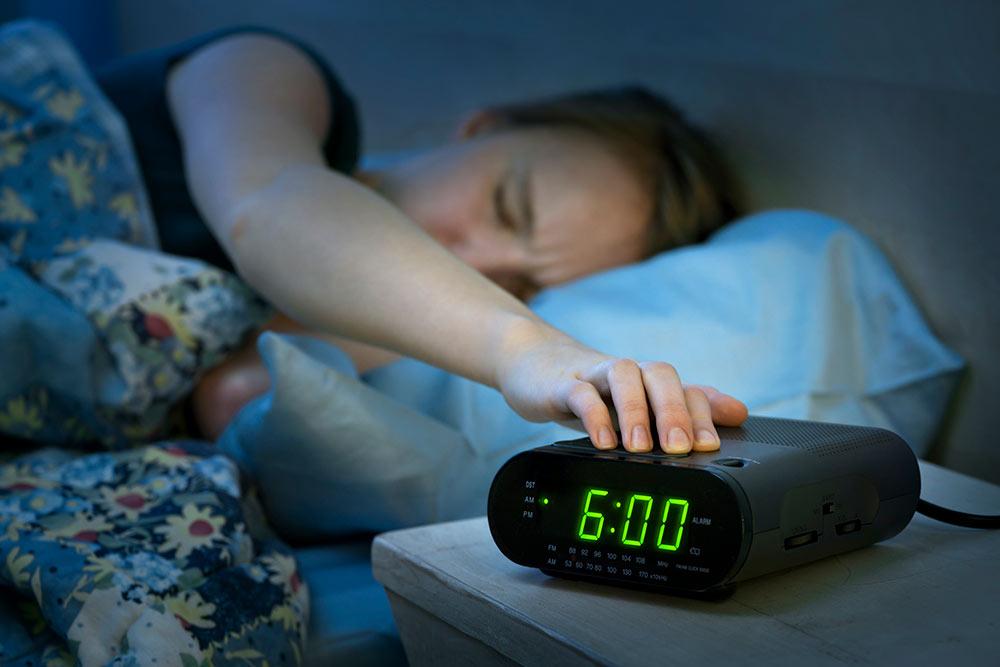At its best, sleep is healthy, enjoyable, and provides many benefits. After a night of restful sleep, you naturally feel refreshed, are in a good mood, and are prepared for a productive day. However, a TV in your bedroom can interfere with a good night's sleep. If you are someone who is frequently watching TV in their bedroom before sleep, there are several reasons how it can affect your health and why you should consider removing it.
TV Increases Stress
There are some interesting relationships between stress and sleep. When you are stressed, it increases the cortisol levels in your body. When this occurs, your sleep time is shortened. You are less likely to obtain the recommended 8 full hours of sleep.
When your cortisol levels are too high, you will also experience short interruptions in sleep. As your sleep is fragmented, light sleep stages occur throughout the night. The restorative, deep sleep stages you need for a night of restful sleep will not occur as often.
High cortisol levels result in many health issues. It can affect your memory, inflammation in your body, your blood sugar levels, and even the ability to regulate your weight. One way you can keep your cortisol levels low for better sleep and health is by removing the TV from your bedroom.
In the current world that we live in, there is a lot on TV that is often stressful and upsetting. The news, crime, and other dramas, as well as tabloid-style talk shows, are stressful. However, not only negative stress can increase stress and cortisol levels in your body. Game shows and even comedies can have similar effects.
The less stress you have at bedtime, the better it is for your sleep. It is not enough to turn the TV off before you climb into bed. For the best results, keep your TV in a different room, and turn it off at least an hour before bedtime.
TV Produces Light
Some young children need night-lights because they are afraid of the dark. While this is not necessarily a good habit, it is understandable. However, once we reach adulthood, there are reasons your bedroom should be dark during the night.
First, light exposure blocks melatonin production. As melatonin promotes sleepiness, it can be more difficult to fall asleep when the TV is on. When you do manage to fall asleep, your sleep quality will be poorer, and the length of time you sleep will be shorter. Also, when your melatonin levels are too low, it can increase your cortisol levels.
Second, exposure to light affects your circadian rhythm. Your circadian rhythm lets your body know when you should be awake and when you should be asleep. If this process is disrupted, you are susceptible to illness, weight issues, mental health problems, and exhaustion. If you have ever done overnight shift work or experienced jet lag after long-distance traveling, you may understand the connection. If it occurs too frequently, you may develop circadian sleep-wake disorder because your body's internal clock is no longer stable.
While all types of light can affect sleep, blue light has the most significant impact. Electronics, including televisions, produce blue light. It has a greater effect on both your circadian rhythm and melatonin production than natural light. When you want to avoid these problems, keep the TV out of your bedroom. A dark bedroom is healthier and more effective.
TV Affects Your Eyesight
Eyestrain, itchiness, and discomfort in your eyes can affect your ability to sleep. These physical discomforts can stop you from falling asleep, or cause you to awaken during the night.
It can even be a problem if you leave your television on all night. You may be asleep, but the blue light from the TV can continue to affect your eyes. You are more likely to awaken during the nighttime if your TV is still on, and it can increase your risk of vision problems. The complications can be worse if the TV is the only light in the room. For healthy eyes and a good night's sleep, keep your TV in a different room.
TV Can Keep You Awake
Watching TV is something that many people enjoy, and there are times when it’s not easy to pull yourself away from the screen. When something interesting is on, you do not want to turn it off. Perhaps you are engrossed in a favorite series, or a movie you want to watch is going to start shortly. You know you should have been asleep an hour ago, but you continue to watch television.
TV can be fun, but it can interfere with other priorities. A full night of sleep that starts at a reasonable time can be one of those priorities. Although this can occur regardless of where your television is located, it can occur more often if the TV is in your bedroom. You may tell yourself that you are resting and relaxing, but what you are doing is staying awake. You are more likely to resist all-night TV if it is not in your room.
There is another way TV can keep you awake. When you watch something that is especially thought-provoking, it can stay on your mind. Whether you continue thinking about a show you enjoyed, or start worrying about incidents that were shown on the news, it can stand in the way of falling asleep. It is better to read a relaxing book than to watch late-night television.
TV And Commercials
Commercials are a standard feature of television. During the daytime or early evening, this may not be a problem. When you watch TV late at night or in the middle of the night, they can be harder to ignore and harder to resist.
Whether you see a basic commercial or an infomercial, the time of the day you see it can make a difference. If an advertisement you are not interested in comes on when you are fully awake and focused, you change the channel, turn off the TV, or simply wait until it is over.
When you need sleep though, your attitude and behavior can be entirely different. As you are more vulnerable to outside influences, you may find yourself ordering products or services that you neither need nor want.
Half-hour infomercials can also keep you awake. You may find ads for music collections or kitchen gadgets entertaining. You can save money and have a good night's sleep simply by turning off the TV at the time you should go to sleep.
TV Can Keep You Alert
You may start to doze off while watching late-night TV, but it can also have the opposite effect. If you are watching a program or movie that is especially exciting, it can increase your alertness. You may feel so riveted to whatever is occurring on the screen that you forget it is well past your bedtime. You may feel fully awake and energized, while in reality, you are desperately in need of sleep.
TV Can Be Addictive
For most adults, reasonable amounts of screen time can be positive. Perhaps you have a few favorite shows, enjoy sports, or keep up with current events on news programs. While this is generally not a problem, TV can be an addictive behavior that robs you of quality sleep.
If you have trouble turning the TV off or find excuses to have your TV on as long and as often as possible, it may be time to talk to your doctor. If you engage in marathon TV sessions, watching whenever you can, you may benefit from professional help. Losing sleep is only one consequence of TV addiction.
TV Is Not A Good Sleep Aid
If you have had a television in your bedroom for a long period, you may find that watching it has become a habit that is difficult to break. This is one reason parents should not allow children to develop this habit by having a TV in their rooms. While it is easier to avoid a habit than break it, it is not too late for you to make changes to your health and wellbeing.
Whether you feel you need the sound from the TV, the light from its screen, or both, you can fall asleep with better results when you do not have it in your bedroom at all.
First, place the TV in a different room, and decide what you want to watch in advance. Make a point of turning it off when the program or whatever you are watching is over.
Second, choose things that will help you relax. You can soak in a bubble bath, do yoga or some light exercise, or read a book, as long as is not too intense. The old-fashioned method of drinking a warm glass of milk can be helpful too.
Third, make your bedroom an inviting place to sleep. Your mattress and the room temperature should be comfortable for you, in addition to having clean bedding on your bed. Set your alarm clock for the time you should be up in the morning, and then turn off all the lights. If you have a computer, tablet, or cell phone in your room at all, do not use any of these devices to watch television.
You should now have a better idea of how removing your TV from your bedroom promotes better sleeping, and you should be encouraged to make these changes. You can have more and a better quality of sleep, simply by choosing to watch TV in a different location. It should not take long for you to experience all the benefits of 8 hours of restful sleep every night.






















